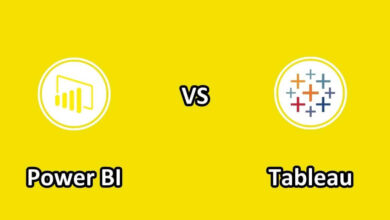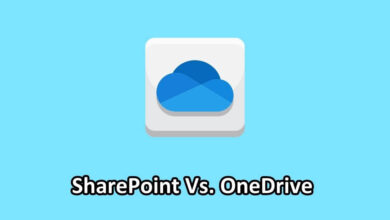Are you in the market for a new computer or looking to upgrade your current one? One of the key decisions you’ll need to make is choosing between solid-state drives (SSDs) and hard disk drives (HDDs) for your storage needs. Both have their pros and cons, but which one reigns supreme? In this article, we will compare two popular choices: Solid State Drive (SSD) vs Hard Disk Drive (HDD) so that you can make an informed decision and get the most out of your computer’s storage capabilities.
SSD uses flash memory to store data, which allows for faster read and write speeds. They also consume less power, making them a great option for laptops and other portable devices. However, they tend to be more expensive than HDDs.
HDD uses spinning disks to store data, which makes them slower than SSDs but also much cheaper. Since they have a larger storage capacity than SSDs, HDDs are often used as long-term storage solutions or for storing large amounts of data such as videos and photos.
SSD Vs HDD (Comparison Table)
| SSD | HDD |
|---|---|
| SSD uses NAND technology known as flash memory chips in order to store the data electronically. | HDD uses spinning disks and magnetic platters in order to store the data magnetically. |
| SSDs have a lower capacity to store data as compared to HDDs. | HDDs have a relatively higher capacity to store the data. |
| SSD has no moving parts, making them more durable, reliable, and resistant to physical shocks. | HDD is less durable and resistant to external shocks due to its moving parts. |
| It is generally more expensive than HDD. | It is comparatively cheaper than SSD. |
| SDD offers faster data transfer rates. | HDDs have slower data transfer rates. |
| SSD consumes significantly less power than HDD. | HDD consumes higher energy and power |
| They are smaller in size and lighter in weight which makes them portable and compact as compared to HDDs. | They are relatively larger in size and heavier in weight compared to SSDs. |
| It typically has a shorter lifespan, but advancement in its technology has enhanced its lifespan. | It typically has a longer lifespan than HDDs. |
What is an SSD?
SSD(Solid State Drive) is a type of storage device that uses integrated circuit assemblies to store data persistently, typically using flash memory. Compared to traditional hard disk drives (HDDs), SSDs are much faster and more reliable, making them a popular choice for enterprise-level storage solutions.
Moreover, SSDs consume less power, generate less heat, and are silent in operation. They are also more resistant to physical shock, vibration, and environmental extremes than HDDs.
Pros of SSD
- Faster Data Transfer – SSDs can access data much faster than traditional hard drives, making them ideal for loading applications and booting up a computer quickly.
- Reliability – SSDs are more reliable than traditional hard drives due to their lack of moving parts, meaning they are less likely to fail over time.
- Low Power Consumption – SSDs consume less power than traditional hard drives, making them better for the environment and more cost-effective to run.
Cons of SSD
- Cost – SSDs are generally more expensive per gigabyte compared to traditional hard drives.
- Storage Capacity – The storage capacity of SSDs is typically lower than that of traditional hard drives, making them unsuitable for large amounts of data storage needs.
- Susceptibility to Damage – Although they are more reliable, SSDs can still be damaged by static electricity or physical impacts which can render them inoperable or corrupt data stored on the drive.
What is an HDD?
An HDD, or hard disk drive, is a storage device that holds and reads data on a spinning disk. It typically stores large amounts of data and is used for long-term storage. HDDs are often used in computers, servers, and other devices that require high-capacity storage.
Moreover, HDDs are typically either internal or external. Internal HDDs are found inside the computer, while external HDDs are connected via USB, SATA, or other cables.
Pros of HDD
- Cost-Effective – HDDs are much cheaper than SSDs, which makes them an attractive storage option for budget-conscious shoppers.
- Capacity – HDDs can store a lot more data than SDDs, making them ideal for large media files like videos and photos.
- Life Span – HDDs typically have a longer life span than SSDs because they are more durable and less vulnerable to shock damage.
Cons of HDD
- Slower Speeds – HDDs are not as fast as SDDs and can take several seconds to read or write data compared to just milliseconds with an SSD.
- Noise – Some models of HDD can be noisy when in use due to their moving parts and spinning disks, which may be disruptive in certain environments such as offices or recording studios.
- Heat Production – HDDs generate more heat than SDDs do due to their mechanical components, which may be problematic if you don’t have sufficient cooling in your computer case or if you’re using an external drive.
- Power Consumption – HDDs consume more power than SDDs, so they may not be the best choice for laptops or other battery-powered devices.
Key Differences Between SSD and HDD
When it comes to a computer’s storage needs, there are two main types of drives: SSD vs HDD. Here are six key differences between the two:
- Technology – SSDs use a type of memory known as flash, while HDDs use spinning disks in order to store the data.
- Capacity – HDDs can store more data than SSDs. For example, a 2TB HDD can hold twice as much data as a 1TB SSD.
- Reliability and Durability – SSDs are relatively more durable and reliable than HDDs because they have no moving parts. Although SSDs can become damaged if exposed to extreme temperatures or shocks, they are better equipped to handle sudden jolts and bumps due to their advanced and improved features.
- Size – SSDs are typically smaller than HDDs, which makes them more suitable for laptops and other portable devices.
- Life Span – HDDs typically have a longer life span than SSDs because they are more durable and less vulnerable to shock damage. However, advancements in NAND technology have enhanced SSD’s lifespan.
- Power Consumption – SSDs consume significantly less power than HDDs, making them more energy efficient, better for the environment. and ideal for laptops and other devices that require low power consumption.
- Fragmentation – HDDs are more susceptible to fragmentation, which can potentially impact their performance, while SSDs do not experience fragmentation issues.
The given table exactly compares both SSD vs HDD in a side-by-side manner.

SSD Vs HDD : Which Type of Drive is Best for Your Computer?
When it comes to deciding which type of drive is best for your computer, there are a few things you need to take into account.
First, you need to decide what you’ll be using your computer for. If you’re a heavy user who needs to store a lot of data, then an HDD is probably the better choice. If you’re more of a casual user who doesn’t need to store as much data, then an SSD might be the better choice.
Second, you need to consider how much money you’re willing to spend on storage. SSDs are generally more expensive than HDDs, so if cost is a factor, then an HDD might be the better choice.
Third, you need to consider what kind of performance you’re looking for. SSDs offer faster boot times and data access speeds than HDDs, so if speed is a priority, then an SSD is the way to go.
Finally, You need to decide whether or not you want your computer to be future-proof. SSDs are the newer technology and are likely to become increasingly popular in the coming years. If you want your computer to be able to handle whatever comes down the pipeline, then an SSD is probably the best choice.
Conclusion
There are a number of factors to consider when deciding whether to invest in an SSD or HDD for your computer’s storage needs. Price and speed are important considerations, but so are compatibility and capacity. Ultimately, the best storage solution for your needs depends on how you use your computer and what type of files you store on it.
If you’re looking for the fastest possible storage solution, an SSD is the way to go. However, if you’re working with large files or need a lot of storage space, an HDD may be a better option. Be sure to do your research and choose the storage solution that’s right for you.



